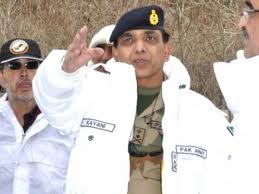Washington, Jan 15: The historic impeachment trial of US President Donald Trump will begin on Tuesday next week, Mitch McConnell, the leader of the Senate's Republican majority, has announced.
Earlier on Tuesday (January 14), Speaker Nancy Pelosi ended the standoff between the Senate and the Democratic-controlled House of Representatives saying that it would vote on next Tuesday to send the impeachment documents to the upper house so it can hold the trial on charges that Trump obstructed Congress and abused presidential powers.
This will be only the third time in the nation's history that a US president is tried after impeachment and Trump can expect to be acquitted like his two predecessors - Bill Clinton in 1998 and Andrew Johnson in 1868 - because there won't be a two-thirds majority to convict and remove him from office.
McConnel told reporters on Tuesday that preparations like swearing in the Senators as jurors for the trial could begin this week ahead of the formal start on next Tuesday.
"This Impeachment Hoax is an outrage," Trump tweeted, repeating his longstanding complaint about it, when the move to hold the trial finally appeared to gain traction.
"The American people deserve the truth and the Constitution demands a trial," Pelosi said.
She had held on to the Articles of Impeachment - the chargesheet against Trump - that the House voted on December 18 in a bid to pressure McConnell to accept her terms for holding the trial and in an attempt to get some Republican senators to break ranks on procedural matters.
But she has agreed to let the process move forward, without an agreement on the main Democratic demand to call in their witnesses at the trial and to introduce new evidence.
The House Intelligence Committee, which conducted the investigation against the president, on Tuesday released what it said was new evidence from Lev Parnas, a former associate of Trump's personal lawyer Rudy Giuliani. Parnas is facing criminal charges.
Pelosi said that starting the trial without witnesses or documents "a pure political cover-up."
The impeachment process is only an investigation by the House and the framing of the chargesheet for the Senate trial that will be presided over by Chief Justice John Roberts with the Senators as jurors and nominees of the House as prosecutors.
While there is no chance for removal of Trump from office, Democrats see the Senate trial as a propaganda mechanism ahead of the elections in November by giving the charges against Trump another public airing and turning voter opinion against Republican senators facing re-election.
Trump called for an outright dismissal of the impeachment by the Senate, but McConnell said, "There is little or no sentiment in the Republican conference for a motion to dismiss."
He added, "Our members feel that we have an obligation to listen to the arguments."
Trump tweeted that by not dismissing the impeachment out of hand, the Senate trial was giving "credence to a trial based on the no evidence, no crime" and "the partisan Democrat Witch Hunt credibility."
Pelosi had hoped to make some Republican senators break ranks with the leaders on the procedures for the trial and has partially succeeded in this as at least four of them appear open to witnesses being called.
While Trump's conviction and ouster from office is virtually impossible because of the two-thirds vote requirement in the 100-member Senate, only a simple majority is required on procedural matters. The Republicans have 53 members and four of them shifting positions could make a difference here.
McConnell appeared confident that he would have a hold on his party senators to set the rules for the trial.
Whether witnesses would be called to testify is still open as the Republicans have said that it would be decided when the trial starts.
The main sticking point is the Democrats demand to call their witnesses to testify at the trial.
The Democrats did not allow the Republicans to call their own witnesses to testify during the impeachment proceeding in the House and Republicans did not seem inclined to oblige them in the Senate.
Trump tweeted, "'We demand fairness' shouts Pelosi and the Do Nothing Democrats, yet the Dems in the House wouldn't let us have 1 witness, no lawyers or even ask questions."
The charges against Trump stem from a July phone call he had with Ukraine's President Volodymyr Zelensky in which he asked him as a "favour" to investigate former Vice President Joe Biden and his son Hunter.
Democrats say that this was an abuse power and amounted to inviting foreign interference in US elections as Biden is the leading candidate for the Democratic nomination to run against Trump in this year's election.
They also say that he withheld crucial military aid to Ukraine, a US ally against Russia, to pressure Zelensky and this endangered US national security. Trump said he delayed the aid to make sure the new government stomped out corruption.
Hunter Biden, who was made to leave the Navy because of alleged drug use and had no experience in the energy industry or in Ukrainian businesses was appointed a director of a gas company there and received monthly payments of $83,000, according to Republicans.
The former vice president, who was looking after Ukrainians affairs, had a prosecutor looking into gas company removed.
He and the Democrats say that it was because the prosecutor was corrupt, while Republicans see it as a conflict of interest.
The obstruction of Congress resulted from Trump's refusal to provide documents that the House demanded and allow some administration officials to testify at the House hearings.






Comments
Add new comment